We are an interdisciplinary team advancing holistic health and wellness perspectives through our research. We engage undergraduate students as research collaborators and research participants and present findings at scientific conferences and in community settings. We publish research papers in peer-reviewed academic journals for dissemination to the scientific and broader community.
Fields of Research
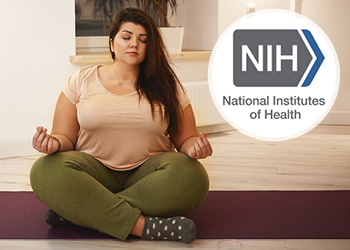
Meditation and Health: National Institutes of Health (NIH) Funded Clinical Trials
We conduct NIH funded clinical trial research on the impact of mind-body programs involving meditation and yoga on psychological well-being and health outcomes among individuals with stress-related health conditions, such as obesity and Type 2 diabetes. People of color and those from lower socioeconomic backgrounds are more at risk for these health conditions, yet, they are less represented in intervention studies. We are addressing this gap in the research and exploring how mind-body practices may help to reduce racial/ethnic and socioeconomic health disparities in health outcomes.
For more information or to get involved:
- Jennifer Daubenmier
- email: jdauben@sfsu.edu
- Publication: Professor’s probe of racial bias in mindfulness research yields surprising results
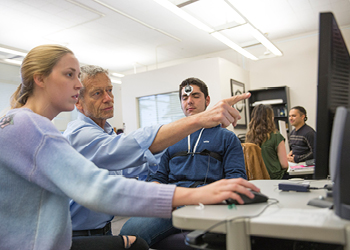
Psychophysiology of Healing/Biofeedback Lab
Making the invisible visible, the unaware aware, the unintended intended, and the unheard heard, the Biofeedback and Psychophysiology of Healing Laboratory is used by students for applied psychophysiology research and biofeedback training. It explores how mind, emotion and body affect each other to optimize health.
For more information or to get involved:
- Erik Peper and Rick Harvey
- email(s): epeper@sfsu.edu, rharvey@sfsu.edu
- Publication: Abdominal SEMG Feedback for Diaphragmatic Breathing: A Methodological Note
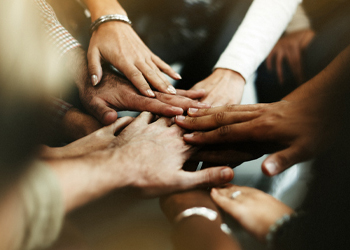
Contemplative Practice and Social Justice
Information alone about social, economic and environmental injustices does not necessarily lead to compassion, solidarity, and a desire to act for change. We are conducting interdisciplinary research to explore how contemplative practices and perspectives from spiritual and religious traditions can be integrated with information about injustice to support social change. We created and evaluated a SF State campus program, “Breathing In, Speaking Up: Contemplative Practice and Social Justice,” which incorporated meditation practices to foster well-being, community and mutual understanding of experiences of oppression and privilege to inspire social change on campus.
For more information or to get involved:
- Jennifer Daubenmier
- email: jdauben@sfsu.edu
- Publication: Book Chapter in Contemplative Practices and Anti-Oppressive Pedagogies for Higher Education
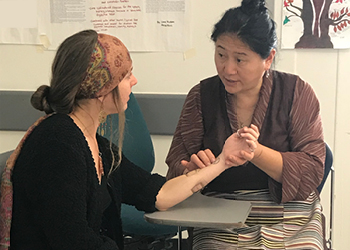
Tibetan Healing Arts: Active Research with Tibetan Doctors
Through an active research program in collaboration with Tibetan doctors, meditation teachers and colleagues at other universities, we are examining the impact of Tibetan meditation practices and medical approaches on health and well-being among college students, those healing from stress and addiction and those with chronic diseases such as Type II diabetes.
For more information or to get involved:
- Jennifer Daubenmier
- email: dauben@sfsu.edu
- Publication: Introduction to Tibetan Medicine and Healing the Healers: Tibetan Medicine Wisdom for Healthcare Professionals in COVID-19 Times
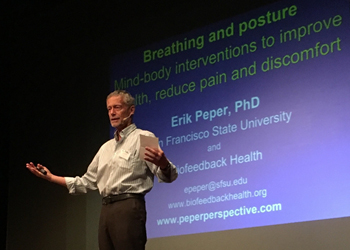
Posture, Breathing and Healthy Computing Lab
"Breath is life" has many meanings. Our research considers ways of measuring posture and breathing to improve health and reduce the effects of 'Tech Stress' at work and at home. Areas of exploration currently include the Healthy Computing Assessment and Training project and the Breathing and Posture Awareness project. Both projects consider how thoughts and emotions affect the body with a focus on investigating self-healing strategies by which individuals can increase control and mobilize health.
For more information or to get involved:
- Erik Peper and Rick Harvey
- email(s): epeper@sfsu.edu, rharvey@sfsu.edu
- Publication: How Posture Affects Memory Recall and Mood
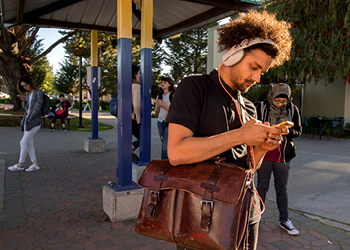
Media & Health: Project Censored-SF State—Independent News Research
Each year Project Censored students do media research to provide validated independent news stories for a national voting process among 18 campus groups, as well as journalists and judges from across the country. This collective vote yields a list of the “top 25 independent news stories of the year”… important news stories not covered by corporate media. These top 25 news stories are then published in an annual book about key media literacy issues for that year.
For more information or to get involved:
- Kenn Burrows
- email: kburrows@sfsu.edu
- Publication: Top Censored stories
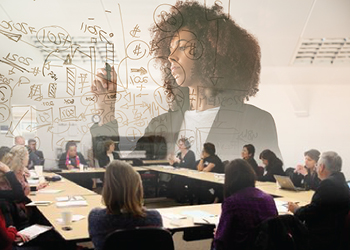
Research Methods and Statistical Support: Community of Representative Researchers
Statistics Community of Representative Researchers (Stat CORR) holds special training sessions and workshops to foster, support, and promote the dissemination of quantitative and qualitative research skills. A key goal is to facilitate networking of faculty, students and staff with appropriate individuals who possess knowledge of research design and analysis. These skills can be applied from concept to data analysis. Stats CORR was created with the assistance of SF States Office of Research and Sponsored Programs (ORSP) under the guidance of Dr. Richard Harvey (Institute for Holistic Health Studies & Department of Recreation, Parks & Tourism) and Dr. Ed Connor (Department of Biology).
For more information contact:
- Richard Harvey
- email: rharvey@sfsu.edu
- Publication: Stat CORR link
Students Featured Presentations and Publications
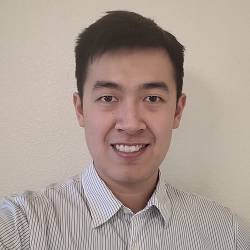
Zhibin (Ben) Liu
- Faculty Advisor(s): Jennifer Daubenmier
- Presentation: Daubenmier, J et al. (2017). Can Eastern Contemplative Practices Contribute to Social Justice?: Student Perspectives. Poster presented at the 9th Annual Association for Contemplative Mind in Higher Education Conference, Oct 27-29, Scotts Valley, CA.
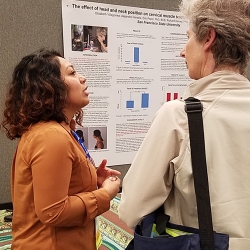
Elizabeth Villagomez
- Faculty Advisor(s): Erik Peper and Rick Harvey
- Publication(s): Harvey, R. H., Peper, E., Booiman, A., Cedillo, A., & Villagomez, E. (2018). The effect of head and neck position on head rotation, cervical muscle tension and symptoms. Biofeedback. 46(3), 65–71.
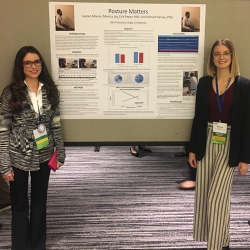
Lauren Mason (left) and Monica Joy (right)
- Faculty Advisor(s): Peper and Harvey
- Publication(s): Harvey, R. H., Peper, E., Mason, L., & Joy, M. (2020). Effect of posture feedback training on health. Applied psychophysiology and biofeedback, 45(2), 59-65.
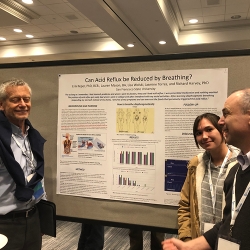
Lisa Wolski
- Faculty Advisor(s): Erik Peper and Rick Harvey
- Publication(s): Wolski, L., Torres, J., Peper, E., Harvey, R. H., & Mason, L. (2019). Reduce acid reflux with diaphragmatic breathing. Poster presented the 50th Annual Scientific Meeting of the Association for Applied Psychophysiology and Biofeedback, Denver, Colorado, March 14-16, 2019.
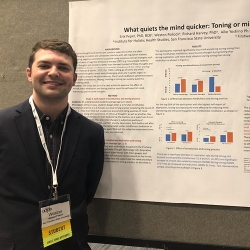
Wes Pollack
- Faculty Advisor(s): Erik Peper and Rick Harvey
- Publication(s): Peper, E., Pollack, W., Harvey, R.H., Yoshino, A., Daubenmier, J. & Anziani, M. (2019). Which quiets the mind more quickly and increases HRV: Toning or mindfulness? NeuroRegulation, 6(3), 128-133. doi:10.15540/nr.6.3.12 https://www.neuroregulation.org/article/view/19345/13263
Recreation, Parks & Tourism Research
Want to learn more about possible research volunteer or paid research assistant opportunities in Recreation, Parks & Tourism (RPT)? Please visit the RPT faculty & student research webpage.